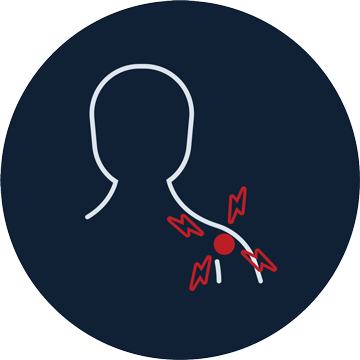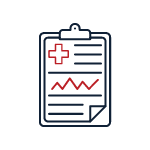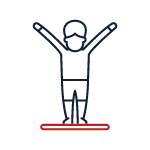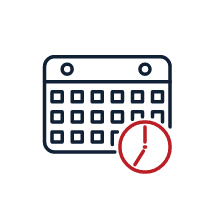
Rotator Cuff Tear
We Treat
Degeneration is the most common cause of a Rotator Cuff Tear. Muscles in our body are constantly under tension and your shoulder may be at risk.
As one of Melbourne’s leading injury clinics in the northern suburbs; we provide care to all local Reservoir residents and surrounding communities including Bundoora, Rosanna, Fairfield, Watsonia, Heidelberg, Coburg, Heidelberg Heights, Macleod West, Preston, Thomastown & Thornbury.
The shoulder joint is regarded as one of the most complex in the human anatomy. A ball and socket joint between the humerus and cavity of the scapula. Held in place with an elaborate system of muscles, tendons and ligaments, the shoulder joints primary function is to provide range of motion and flexibility to the arm.

Types of Rotator Cuff Tears
Generally there are 2 types of rotator cuff tears
Acute tear
Usually a result of a fall with an outstretched arm, a heavy or strenuous lift or a sporting injury such as throwing a cricket ball. Often acute shoulder injuries such as a dislocated shoulder or broken collarbone force the rotator cuff to tear.
Degenerative tear
General wear and tear that is often talked about in other joints of the body can and does affect the rotator cuff. Risk factors associated with the rotator cuff tears include age, repetitive stress and lack of blood supply. Over time the body’s ability to repair tendon damage is impaired.
Playing sports such as Football, Basketball, Soccer and especially Cricket, baseball or swimming (where using the shoulder is a large part of the sport) can place you at greater risk of an acute tear or even a degenerative tear.
Symptoms of Rotator Cuff Tears
- Clicking noise when raising or lowering the arm
- Pain when reaching behind the back
- Lack of mobility in the shoulder joint
- Pain and swelling in the front of the shoulder and side of the arm
Initially rotator cuff tear symptoms may not be of any concern, but typically will worsen day by day until the symptoms are noticeable and distressing.
If symptoms are present for more than 3 days seeking a medical health professional is advised.
Diagnosing Rotator Cuff Tears
Our practitioners will test a number of things when assessing a patient for a rotator cuff tear:
- Pain and tenderness
- Range of motion in the shoulder joint
- Pushing and pulling tests to asses strength
Medical imaging tests will also be used to confirm the diagnosis and to rule out any other potential causes such as bone spurs, these tests include MRI’s, X-Rays and ultrasound.
Treatment for Rotator Cuff Tears
Once diagnosed Rotator cuff tears are quite delicate. Activities that cause pain and inflammation should be avoided at all costs and taking anti-inflammatory drugs is recommended only for a short period of time.
RICE (Rest, Ice, Compression, and Elevation) is also recommended in the 72 hours post injury and particularly before seeing a health professional
- Strengthening exercises
- Physical therapy
- Injections
- Electrical muscle stimulation
- Surgery (as a worst case scenario when above mentioned treatments have failed to heal tear)
If you have any questions in regards to this condition do not hesitate to call our team to arrange an appointment. Our team of allied health professionals including Osteopaths, Chiropractors, Physiotherapists & Podiatrists offer professional care to address the source of your problem and pain.





